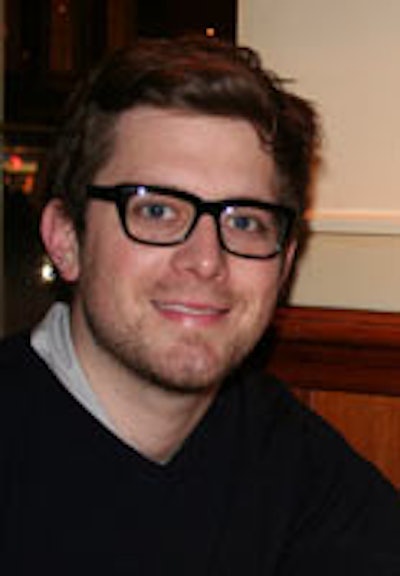
This weekend the online music magazine Pitchfork Media hosts the annual Pitchfork Music Festival in its hometown of Chicago. The indie-music bible returns to Union Park for a fourth year with an enviable lineup of 41 acts handpicked by the Pitchfork staff, including headliners Spoon, Animal Collective, the Hold Steady, and Dinosaur Jr.
Pitchfork Media publisher Chris Kaskie, one of the company's first employees when it catapulted from smalltime operation to online destination for millions, works to organize the creative and business aspects of the three-day affair. With the nearly sold-out festival just a few days off, Chris spoke with us about impressing fans, integrating sponsors, and competing with that other music festival in Chicago.
Pitchfork is widely considered a tastemaker and influencer in the music industry. Do you find that makes it easier or more difficult to impress fans and critics with your festival lineup?
I wouldn’t say easy. It’s never easy to impress people, especially if you try to set the bar. We try to do a good job pulling everything together in terms of making it a seamless experience and choosing the right bands, but it’s never a matter of trying to impress. The goal is to provide an accurate representation of the content we put on the site every day. In the end, it impresses more people than it disappoints.
How has the festival changed since its first outing in 2005?
It hasn’t gotten too much different. Most changes have been internal. Just making it through every year has helped to optimize the opportunities and keep the festival natural and seamless. From what a fan might have noticed, not a whole lot has changed. The approach to pulling off the festival has gotten slightly different. The way we structure the festival and incorporate sponsorships has improved through trial and error.
You charge people $65 for three days. How are you able to keep the cost dramatically lower than similar events?
I don’t think it’s really anything that we’re doing actively. That’s the point of the festival. We use the funds available and we can get the bands we want. We don’t want it to be about keeping the cost down, because we feel this is how much it should cost. You can get by with what you’ve got. We don’t worry about how much to charge, because it’s not entirely profit driven.
U.K. concert promoter All Tomorrow's Parties asked you to help curate their festival in England earlier this year. Are you looking to franchise a Pitchfork concert series outside Chicago?
In terms of any plans to do more events like the festival, there are none at this point. We’re really close with the people at ATP, and when they asked us to do that, it was very exciting. We’re the first non-band or non-artist to do that. It was a unique opportunity that probably won’t recreate itself. It’s a much bigger concern to make what we have right now the best it can be before moving it.
What sponsors do you work most closely with, and how do you incorporate them?
This year some of our biggest sponsors are Boost Mobile, 2K Sports, imeem, Fuze, Sparks beer, and emusic.
I think there’s no difference in the way that we handle sponsors [compared to other festivals], it’s just what we do with them ends up being more low-key. It’s more subtle. You have to think of your signage and the best way of working it in without changing the atmosphere. It’s just a matter of working with the sponsors closely and continuing to make it rewarding for them while maintaining the feel of the festival, because sometimes it’s not what the sponsors are used to.
Do you approach the Pitchfork Festival differently because it’s so close in time and proximity to Lollapalooza?
No, I don’t think it’s a matter of approach. We’ve been within two or three weeks of Lollapalooza since we started in 2005, and we’ve found a way to coexist. As far as differentiating the festival to the concertgoers, we’ve taken more chances. We try to focus on new and emerging artists, so there’s a good bulk of that. Putting those people on a main stage instead of a side stage is something that others might not do. This year you’re going to get bands like Fleet Foxes that go on at two or three in the afternoon, where at other festivals they’d probably get lost in the day.
Lollapalooza and Pitchfork are both good, and they’re very different. They book tons of acts that we like and respect. Hopefully they see the same in us. It’s an easy cohabitation.
Correction: This story has been changed to reflect the event's Union Park location.



















